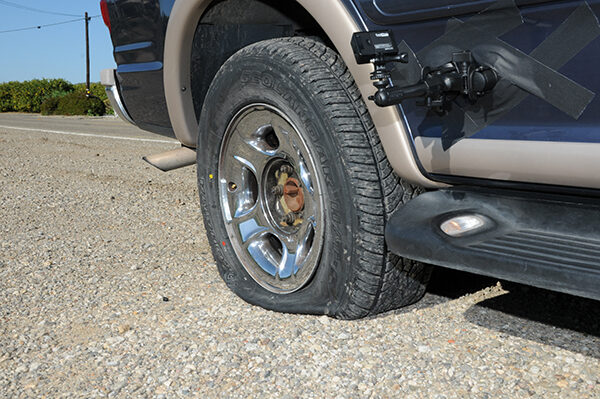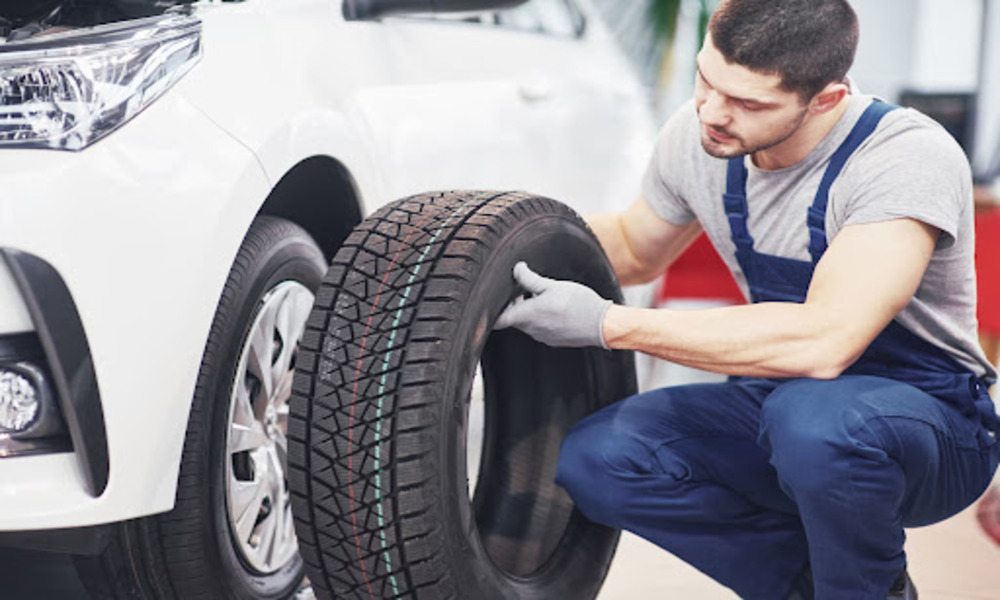When faced with a flat tire, having a reliable solution can make a world of difference. Two common options are run-flat tires and compact spares. Both have unique advantages and drawbacks, and the right choice depends on various factors, including your driving habits, budget, and vehicle type. This article provides a comprehensive comparison to help you decide which option suits you best.
What Are Run-Flat Tires?
Run-flat tires are designed to maintain functionality even after a puncture, allowing you to continue driving for a limited distance, typically around 50 miles at reduced speeds. This innovative design offers convenience and safety, eliminating the immediate need to pull over for a tire change.
Run-flat tires come in two main types:
- Self-Supporting Run-Flat Tires: These have reinforced sidewalls that support the weight of the vehicle after air pressure loss.
- Support Ring Systems: These include a ring attached to the wheel, offering support when the tire loses pressure.
Advantages:
- Convenience: No immediate need to change the tire; you can drive to the nearest repair shop.
- Safety: Reduces the risk of accidents during sudden tire failure.
- Space-Saving: Eliminates the need for a spare tire, freeing up trunk space.
Disadvantages:
- Cost: Higher initial purchase price compared to standard tires.
- Limited Repairability: Many run-flat tires cannot be repaired after a puncture.
- Ride Quality: They may provide a slightly firmer ride due to reinforced sidewalls.
What Are Compact Spares?
Compact spares, often called “donut tires,” are temporary solutions designed for emergency use. These lightweight and space-efficient tires are meant to get you to the nearest repair shop after a flat.
Advantages:
- Cost-Effective: Cheaper than run-flat tires and a viable backup option.
- Lightweight and Compact: Easy to store and handle.
- Universal Compatibility: Suitable for most vehicles without special requirements.
Disadvantages:
- Usage Limitations: Designed for short distances and low speeds.
- Manual Replacement: Requires you to change the tire yourself, which can be challenging in certain conditions.
- Storage Requirement: Though compact, they still require dedicated storage space.

Detailed Comparison: Run-Flat Tires vs. Compact Spares
- Convenience: Run-flat tires allow you to continue driving after a puncture, reducing the stress of roadside emergencies. Compact spares, while effective, require immediate replacement and may not be ideal in hazardous conditions.
- Cost: Run-flat tires are more expensive upfront and may have higher replacement costs. Compact spares are more affordable, making them a budget-friendly option for many drivers.
- Performance: Run-flat tires can slightly impact ride comfort due to their stiffer structure. Compact spares, on the other hand, offer limited performance, as they are not designed for extended use or high speeds.
- Safety: Run-flat tires enhance safety by maintaining vehicle stability during a puncture. Compact spares, if improperly installed or used beyond their limits, can pose safety risks.
- Practicality: Run-flat tires eliminate the need for storage space, while compact spares require dedicated storage in your vehicle. For smaller cars, this can be a significant consideration.
- Longevity: Run-flat tires have a similar lifespan to regular tires but often cannot be repaired after a puncture. Compact spares are temporary solutions and must be replaced after use.
- Environmental Impact: Both options have environmental implications. Run-flat tires are less likely to end up as waste but are more challenging to repair. Compact spares contribute to waste due to their single-use nature.
When to Choose Run-Flat Tires
Run-flat tires are ideal for drivers who frequently travel in urban areas with readily available repair shops. They are also well-suited for luxury and performance vehicles, many of which are designed to accommodate run-flat technology. If safety and convenience are top priorities, especially on highways, run-flat tires are a compelling choice.
When to Choose Compact Spares
Compact spares are best for those who prioritize cost-effectiveness and do not mind manual tire replacement. They are particularly valuable for drivers in rural or remote areas, where repair services may not be readily available. Compact spares are also a good option for older vehicles or those not equipped with run-flat tire technology.
Expert Opinions and Real-World Experiences
Automotive experts often recommend run-flat tires for newer vehicles and drivers who prioritize safety and convenience. However, they acknowledge the cost can be a deterrent. On the other hand, compact spares remain a reliable and economical option for emergencies, provided drivers understand their limitations. Consumer feedback highlights the ease of use of run-flat tires but also emphasizes their higher maintenance costs. Compact spares are praised for their simplicity but criticized for their limited performance.
Conclusion
Both run-flat tires and compact spares offer valuable solutions for dealing with flat tires, but their suitability depends on your driving habits, budget, and vehicle type. Run-flat tires excel in convenience and safety, making them ideal for urban and highway driving. Compact spares are a cost-effective backup option for those who prefer a manual solution. Assess your needs and preferences carefully to choose the option that best fits your lifestyle.

 The Real Cost of Anime Car Wraps: What You Need to Know Before Going Full Itasha
The Real Cost of Anime Car Wraps: What You Need to Know Before Going Full Itasha  The Importance of Quiet Generators for Peaceful Sleep: Featuring the Jackery Solar Generator 2000 Plus
The Importance of Quiet Generators for Peaceful Sleep: Featuring the Jackery Solar Generator 2000 Plus  Why WEX Motorpass Is the Smart Choice for Business Fuel Management
Why WEX Motorpass Is the Smart Choice for Business Fuel Management  Top Choice for 4WD and Overlanding Rentals in Bozeman
Top Choice for 4WD and Overlanding Rentals in Bozeman  How Car Window Tinting Enhances Privacy and Protection on the Road
How Car Window Tinting Enhances Privacy and Protection on the Road  Certified Preowned Cars: Are They Worth It?
Certified Preowned Cars: Are They Worth It?  Apps That Help Diagnose Car Problems Like a Mechanic
Apps That Help Diagnose Car Problems Like a Mechanic  How to Track Fuel Efficiency and Expenses Using Smart Apps
How to Track Fuel Efficiency and Expenses Using Smart Apps  The Top 10 Car Maintenance Apps Every Driver Needs
The Top 10 Car Maintenance Apps Every Driver Needs 